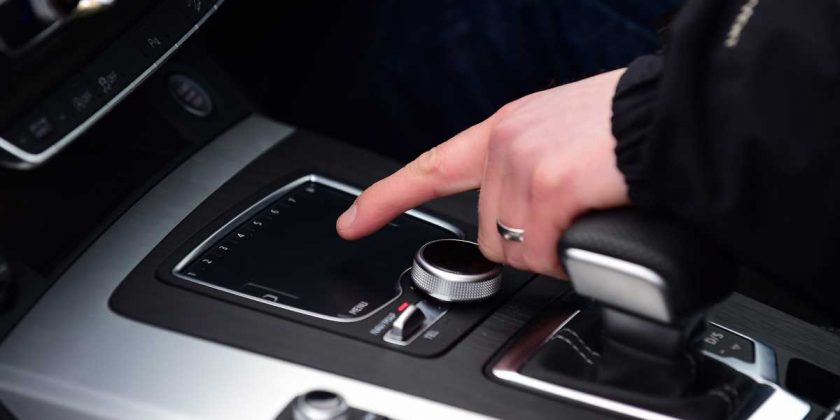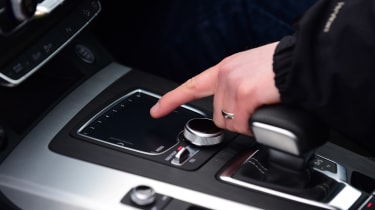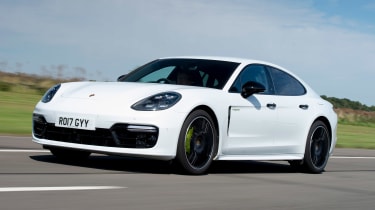If you're buying or selling a car, you'll want to know how much it's worth. So what’s the best way to find the true value of a used car?
If you’re looking for a car valuation, it’s likely that you’re in the process of buying or selling. Whichever side of the car deal you are on, finding out accurately what a car is worth is arguably the most important part of the transaction.
It can also be an essential part of choosing whether to hand back a car which has been bought with a PCP plan or to take out finance and purchase it outright. If your car has been written off or stolen, then you’ll also need a valuation to ensure the settlement you’ve been offered by the insurance company is fair.
• Buying a used car: The ultimate guide
We’ve put together this car valuation guide explaining depreciation, the dos and don’ts of researching prices and some of the little things you can do while in ownership of your car that could translate into a better sell-on price when the time comes.
How much is my car worth?
If you’ve bought a new car and now is the time to sell, you’ll be expecting to take a hit on its value. As a rough guide, mainstream production cars lose around 60 per cent of their new price over three years with average mileage. This means a car you bought for £25,000 will net you just £10,000 three years down the line.
It’s not that simple of course, because some cars do better than others, and some exclusive limited-edition collector’s cars could actually gain in value. It’s important for owners to have a grasp of the factors that affect their own car’s value.
What factors affect your used car valuation most?
Most cars lose the bulk of their value in the first three to five years, and the AA estimates that after eight years many cars are unlikely to depreciate further if they are well-cared-for. But the make of your car can easily determine how much the years devalue your vehicle. Data from the car valuation service CAP HPi highlights the lowest depreciating car brands in the UK:
The slowest depreciating car brands
Below are the UK’s 10 slowest depreciating car brands by retained value after 1 year and 10,000 miles…
| Make | Annual rate of depreciation |
| 1. Ferrari | 83.70% |
| 2. Porsche | 81.10% |
| 3. Lotus | 80.10% |
| 4. Lamborghini | 79.70% |
| 5. Dacia | 69.10% |
| 6. Rolls-Royce | 68.60% |
| 7. McLaren | 68.10% |
| 8. Lexus | 68.00% |
| 9. Land Rover | 67.70% |
| 10. Subaru | 67.70% |
As the data shows, premium makes tend to retain their value better than budget brands but some affordable manufacturers do make the top 10.
Age and make are factors which owners will be unable to change after purchasing a vehicle, but where every motorist can make the difference is how much and how carefully they look after their car. Mileage is a massive factor in the value of a car, and keeping it low will go a long way to ensuring a higher sale price.
Keeping a car well serviced (and keeping all the bills and stamps to prove it) will make it more attractive and valuable to buyers. A clean and well looked after car will always sell for a better price than a scruffy example – remember this the next time you’re attempting an ambitious parallel park.
• The fastest depreciating cars
While it may be a pain in the neck to have work done, calculate carefully whether the cost of repairing that scuffed alloy, panel ding or cracked light lens will repay you at resale time – an immaculately presented car is usually a magnet to buyers.
Seasonal factors are also worth considering. It may be a cliché, but convertibles and sports car prices do rise in the spring. Likewise, 4x4s and SUVs tend to be more in demand in the winter. Taking all this into account, the next step is to find out how much is your car actually worth.
How to value your car
The easiest way to get a rough estimate of your car value is to go to a classifieds website and search for your specific make, model, and year with similar mileage and condition to see what prices are being asked.
Keep in mind that most advertisers will accept an offer near to the asking price though, and professional traders will always ask more. Buyers who use dealers are usually prepared to pay more because they provide monthly finance deals, warranties and more legal protection if things go wrong.
Dealers have to make a living though, so they will also offer you less for a car you are hoping to sell. As a rule of thumb, a dealer will want to be looking at ‘marking up’ the price by £500-£2,000 per car, depending on the value and any work which needs to be done.
If your car is a little out of the ordinary, such as a 4×4, sportscar, electric vehicle or a classic, it may be worth looking around for a specialist who will be willing to offer more for a car they know they’ll be able to sell on quickly.
Once you’ve checked the classifieds, there are other ways to check if you’re getting a good deal. Industry professionals such as CAP and Glass’s provide a service where you input your vehicle details and they provide you with a rough estimate. These are often paid services but could be worth the money if you can't seem to find the right value by doing your own research. Of course, your potential buyers may be making similar online searches too.
• Cars that hold their value the best
In recent years the number of websites offering free valuations has increased, and while these can be a good indicator of a car’s value, you are still best to see what similar condition cars are going for online. This is mainly because a website can’t adjust for all the variables that are important to car values we mentioned earlier. This is especially important as a car gets older, as a banger which is rusty and has been poorly maintained could only be worth the scrap value, while a cherished example of the same car will still be a desirable purchase.
An online car buying service will also give you a good idea of the trade-in value of your car, but before you commit to selling to one of these companies it is worth getting their inspection done before it is too late. You can expect them to knock off money for every extra mile, chip and scrape and your haggling power is far less when you need the money for your new car and have cancelled your insurance, for example.
Ultimately, though, a car will sell for as much as someone is willing to pay for it, so don’t be afraid to be slightly optimistic when putting it up for sale – and take money off if it won't shift.
Now read our extensive guide to saving on your motoring costs…
Source: Read Full Article



